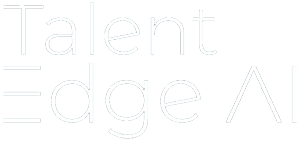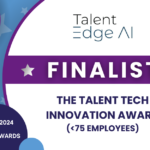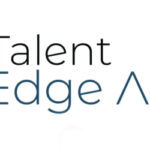Human Resources is concerned. Every conference and every meeting about innovation is focused on the potential of risk of AI in the people management process. Despite all of the opportunity to enhance HR practices, concerns about job displacement, bias, and ethical implications are top of mind. However, rather than succumbing to fear, it’s time for HR professionals to acknowledge the inevitability of AI’s integration and equip themselves with the knowledge and skills needed to find the right approach for their business.
The fear surrounding AI in human resources is understandable. After all, the prospect of algorithms making critical hiring decisions or automating essential HR functions can evoke concerns about job security and fairness. Additionally, the potential for AI to perpetuate biases inherent in historical data raises ethical dilemmas that cannot be ignored.
Yet, burying our heads in the sand and resisting AI’s potential in HR processes is not a viable solution. The reality is that AI already feels like it is taking over various aspects of talent acquisition, employee management, and workforce planning, and its influence will only continue to grow. So, rather than shying away from this inevitable future, HR professionals must confront their fears head-on and embrace AI as a tool to enhance, rather than replace, their expertise and effectiveness.
Education is key. By familiarizing themselves with the principles of AI, machine learning, and data analytics, HR professionals can better understand how these technologies work and their potential implications for recruitment, performance management, and employee engagement. Moreover, gaining proficiency in AI-driven tools and platforms empowers HR professionals to leverage data-driven insights to make more informed decisions and drive strategic initiatives.
By advocating for responsible AI practices and championing diversity and inclusion in algorithmic decision-making processes, HR professionals can help mitigate the risks of bias and ensure fair treatment of all candidates and employees. Moreover, fostering a culture of ethical AI within organizations not only builds trust with employees but also safeguards against potential legal and reputational risks.
Despite the challenges and uncertainties surrounding AI in HR, it’s essential to recognize the myriad opportunities it presents. AI-driven tools can automate repetitive tasks, streamline administrative processes, and enable HR professionals to focus on high-value activities that require human judgment and empathy. From predictive analytics for workforce planning to personalized learning recommendations for employee development, AI has the potential to revolutionize HR practices and drive organizational success.
Concern over AI in HR is natural, but it should not paralyze us. By prioritizing education, advocating for ethical AI practices, and seizing the opportunities AI presents, HR professionals can not only mitigate risks but also drive innovation and transformation in the HR landscape. The future of HR is AI-enabled, and it’s time to embrace it with confidence and preparation.






